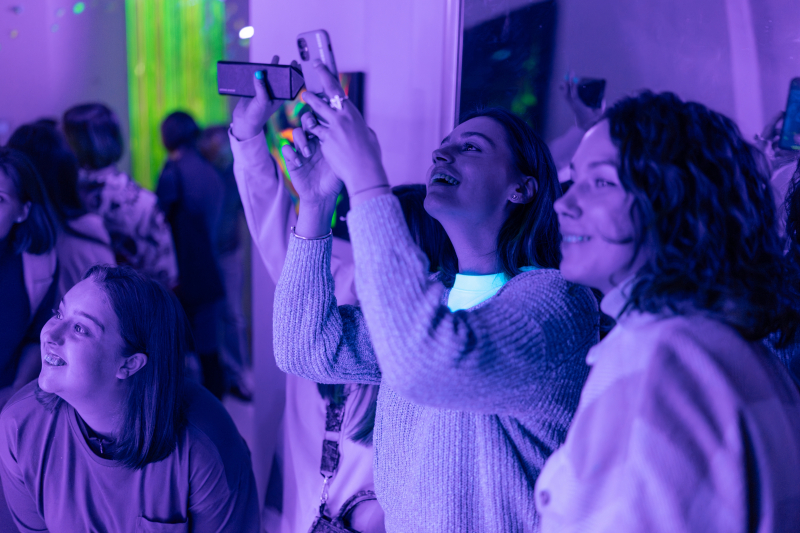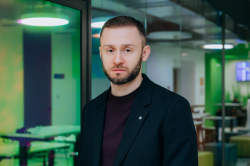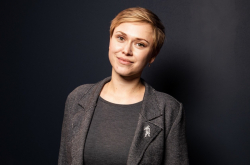The project Scientific St. Petersburg will feature traditional lectures and city tours from researchers, clinicians, and guides, as well as some original formats, such as quizzes and quests, where participants will get to see the city and its history from a different angle. All of the featured events are free of charge.
For instance, since June, ITMO’s Center for Science Communication has been organizing popular science lectures at the Vokzal 1853 space. There, physicists, chemists, programmers, and psychologists talk about complex concepts in simple terms: from potential space hazards to the physiology behind joy and revulsion. The next talk is scheduled for October 13: Dmitry Naumov, the head of the neutrino program at the Joint Institute for Nuclear Research, will talk about black hole physics. Visitors will learn how these fascinating objects form, what happens close to the event horizon, and how black holes influence the galaxy.
In parallel with the Nobel Week, another popular city location, New Holland Island, will host a series of lectures organized by the Center for Science Communication. During these Noble Talks, speakers will discuss the role of scientific discoveries in our lives. Among the first speakers will be Daria Kozlova, ITMO’s First Vice Rector and the head of Yandex Education; Alexander Malich, the head of Alexandrinsky Theater; Dmitry Karlovets, a leading researcher at ITMO’s School of Physics and Engineering; Evgeniya Sokolova, an endocrinologist and head of ITMO’s Public Health Sciences Master’s program; and Yakov Somov, the founder of Lektorium. Registration is already open for the first talk – about the Nobel Prize in Physics and the influence of science on the arts (in Russian).
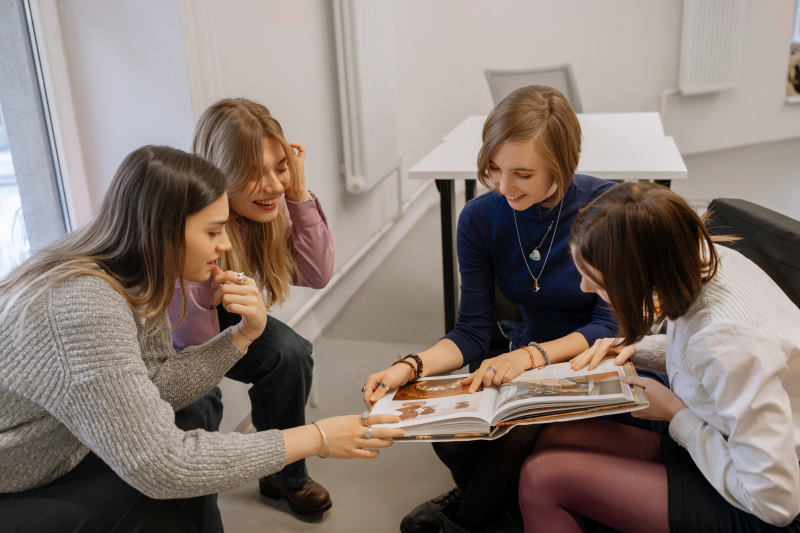
Photo by Nikita Seliverstov
Another option to learn more about the city is team games and quizzes. In late summer, citizens of St. Petersburg, Kazan, Yekaterinburg, and Tyumen took part in free events called Quiz, Please!, for which the organizers and ITMO experts contributed a unique set of questions about Russian science. The new project in October will feature an interactive quest about science in the times of Peter the Great, the founder of St. Petersburg. Participants will be able to walk down the streets of 18th century St. Petersburg at any time they choose – the guides will be available for free on this website (in Russian).
Unique guided tours and masterpieces as seen by scientists
Another feature of the Scientific St. Petersburg project are guided tours. These are unique routes connecting the city’s scientific attractions: “medical” locations (by Polina Zhikorentseva, a clinician, lecturer at St. Petersburg State Pediatric Medical University, and author of a popular Telegram channel) and independent bookstores (by Lyubov Belyatskaya, a co-founder of the Vse Svobodny independent bookstore). Currently, there are no available places for in-person guided tours, but all the associated materials will soon be available on the project’s website.
What’s more, anyone can suggest their own tour of the city’s scientific or engineering locations through an open competition. The best projects will receive organizational and methodological support. More details will be announced later on the center’s social media and website.
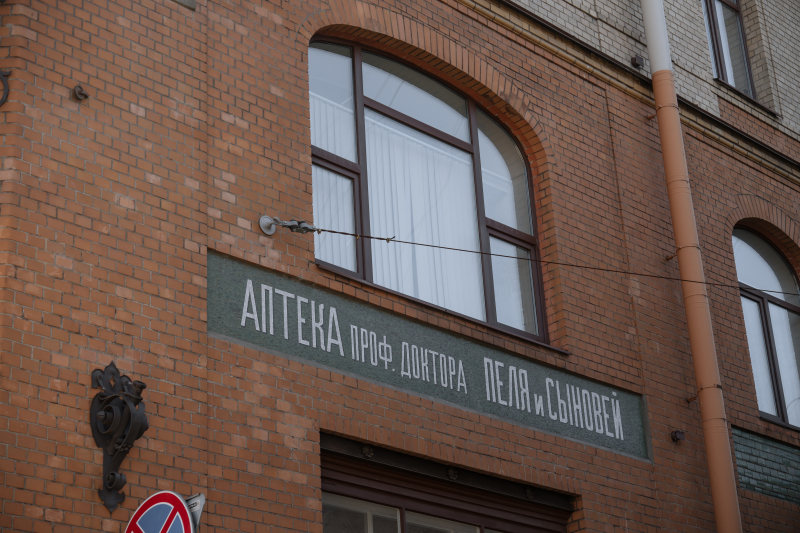
One of the locations on Polina Zhikorentseva’s guide is the famous Dr. Pel’s apothecary on Vasilyevsky Island. Photo by Nikita Seliverstov
ITMO’s scientific communicators also collaborated with the Russian Museum to offer visitors a peek through the eyes of a researcher. As the lead up to a grand exhibition celebrating the 225th anniversary of the birth of Karl Bryullov, a team headed by a science art curator Olga Remneva selected three Russian masterpieces and showed them to researchers from various fields – from herpetologists to volcanologists. Their point of view will be presented as a long form article to be realized alongside the exhibition. A comic book will also be available to exhibition visitors, which will add to the museum experience for children and adults alike.
“Scientific St. Petersburg has a great team behind it and we are grateful that the scientists have welcomed the idea, actively developing forms of interacting with the public. We are currently selecting different formats of science popularization within the project. Our major goal is still to talk about the scientists whose curiosity, ethics, and passion inspire us. We’ve collected many stories about pathfinders, experimenters, and keepers of ancient objects – now we want to share them,” says Daria Denisova, head of the project and ITMO’s Center for Science Communication.
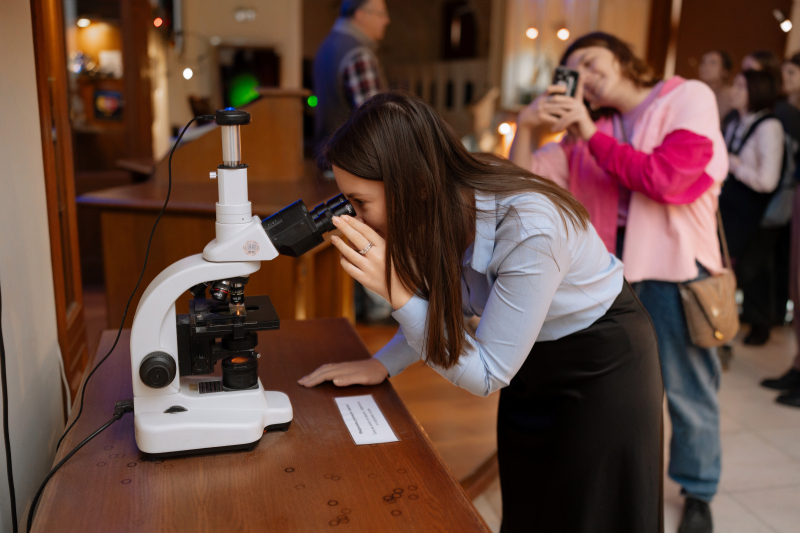
Photo by Nikita Seliverstov
The project is supported by the Russian Ministry of Science and Higher Education.
“We want to look at the city from a scientific point of view and put some related locations on the map to show how close each of us comes to science. It’s about universities, museums, and libraries, as well as memorials and streets, and various events connected to scientific progress. We hope that popular science events and personal stories will liven up this new layer of the city’s space,” notes Konstantin Fursov, a leading expert at the Center for Science Communication and head of the laboratory of popular science projects at the educational foundation Talent and Success.
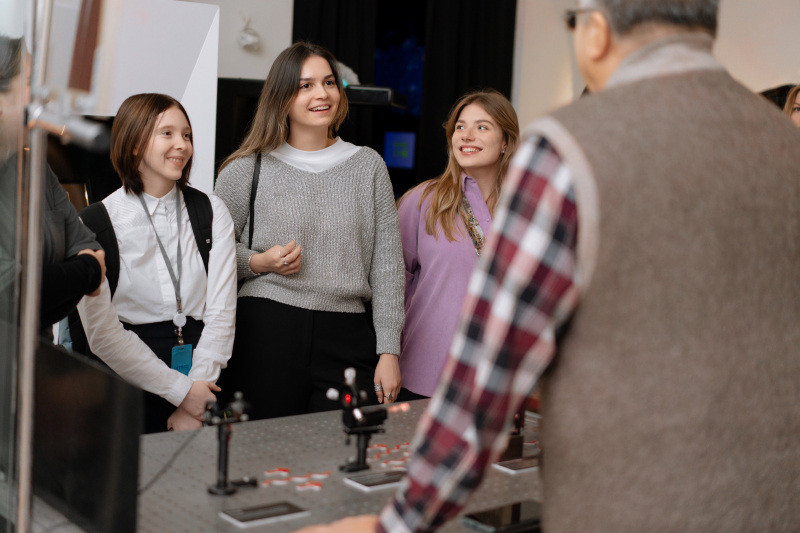
Photo by Nikita Seliverstov
Lab ambience and the scientific symbol of the city
With Scientific St. Petersburg, the public will get to hear science, too. This autumn, the creative association SEANS, the student media Megabyte, and the Center for Science Communication will present a joint electronic music collection – based on the sounds of St. Petersburg laboratories. Musicians visited six laboratories in the city, recording the beeps of electronic devices, the voices of scientists, and the clinking of test tubes. These sounds were then processed, transformed into samples, and used to create tracks.
The project will reinterpret the city’s “scientific” design code, too. In partnership with St. Petersburg's Foundation for Support of Innovations and Youth Initiatives, the organizers launched a project school where designers and science communicators collaborate on ideas for scientific souvenirs. According to the curators, this will help create new associations with the city, featuring not only familiar landmarks, but also its scientific past, present, and future.
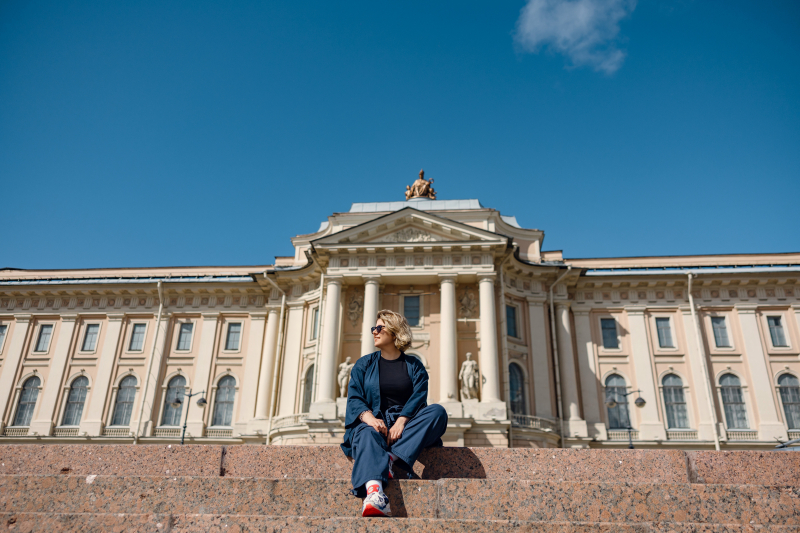
Yulia Volzhina, the executive secretary of the project Scientific St. Petersburg. Photo by Shamil Troyanovsky
“We believe that our project will not only provide a new perspective on St. Petersburg, but will also inspire other cities to create similar projects. We’ve planned several lectures on how to implement similar projects and use our ideas in any Russian city,” says Yulia Volzhina, a marketing expert at the Center for Science Communication and the project’s executive secretary.
